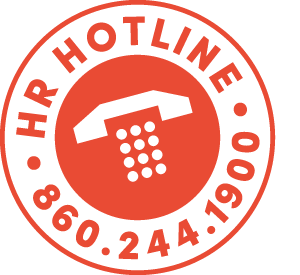HR Hotline: Do We Continue Health Insurance for a Furloughed Employee?

Q: Business is slowing for our company. If we furlough a full time non-exempt employee, do we have to continue their group health insurance?
A: The answer depends in part on how many employees you have. If you have more than 50, the Affordable Care Act requires that full-time employees, defined as those working more than 30 hours per week over the last year or so, be offered coverage.

Intermittent weeks of under 30 hours would not disqualify workers from eligibility unless they had extended time working reduced hours. And then they would be eligible to continue the coverage under a COBRA option, paying the full premium themselves.
Whether and when they might lose coverage due to reduced hours is a more complicated question.
If your company has fewer than 50 employees, the ACA does not mandate coverage for any employees, and eligibility is based on company policy and plan terms.
Most group plans define the eligibility threshold as “regularly scheduled and working 30 or more hours per week.”
The 30 hours per week is an industry practice, a common standard reflected in most group insurance contracts, but not statutory or regulatory under either state or federal requirements.
Coverage Changes
While some plans allow changes in coverage to be made biweekly or weekly, most often changes in coverage such as enrollment or dropped coverage are made monthly on the first of the month.
That reflects the employee’s status during the prior month, so averaging under 30 hours in a month might result in loss of eligibility the first of the following month.
Where employee hours drift above or below 30 from week to week, a monthly average is the typical standard.
Where employee hours drift above or below 30 from week to week, a monthly average is the typical standard.
But even when an employee averages under 30 hours per week in a month, if that is not expected to continue, the employee may be carried for another month as a full-time eligible employee with the expectation they will work sufficient hours in the next month.
That approach simplifies things, rather than dropping and reenrolling from month to month, offering COBRA during the low hours months, an administrative nightmare.
But if you are scheduling reduced hours and expect it to continue, that would trigger a loss of eligibility, and the employee’s coverage could be suspended, and further coverage offered under COBRA with the employee having to pay the full premium.
Position Classification
Even if hours are above 30 per week in some weeks, you could classify the position as a non-benefit eligible assignment due to the fluctuating hours or uncertain schedule, and instead offer COBRA.
Since the ACA does not apply, you are free to categorize positions as not eligible for benefits, even if the hours exceed 30 per week, as long as you are not selecting those situations based on the protected class factors including age, gender, and health history.
Furloughs are often used for temporary periods of reduced hours, or no work at all, while implying that when work picks up again, the worker will likely be rehired, or put back to a full schedule.
During the COVID-19 pandemic, insurance carriers have indicated they are willing to be flexible.
There is no obligation to do so. During a furlough, unlike a layoff, a worker’s seniority is often preserved, their earned but unused paid time off may not be paid out, but instead frozen for future use, and upon return to full-time status, they may resume accruing PTO and using time previously earned.
Also, group benefits are often maintained, with either the same full-time contribution formula, or some adjusted amounts reflecting actual hours worked.
During the COVID-19 pandemic, insurance carriers have indicated they are willing to be flexible and allow, but not require, that employees remain covered even though they are working reduced hours below the eligibility threshold.
COBRA
Note also that under COBRA, employers are permitted, but not required to shift the full premium payments to the employee.
It is entirely permissible to offer some subsidy toward paying the COBRA premium, so if you wanted to contribute some pro rata amount reflecting the reduced hours worked, that is acceptable.
We recommend that you characterize it as COBRA coverage if the hours don’t meet the plan’s requirements for active, full-time status.
It is entirely permissible to offer some subsidy toward paying the COBRA premium.
That way you are not submitting an ineligible worker for active, full-time insurance coverage, which could be deemed misrepresenting a worker’s eligibility, a form of fraud.
But continuing the coverage under COBRA is what should happen, and offering some subsidy towards the COBRA premium is perfectly acceptable, but not required.
HR problems? Email or call Mark Soycher at the HR Hotline (860.244.1900) | @HRHotline
RELATED
EXPLORE BY CATEGORY
Stay Connected with CBIA News Digests
The latest news and information delivered directly to your inbox.


